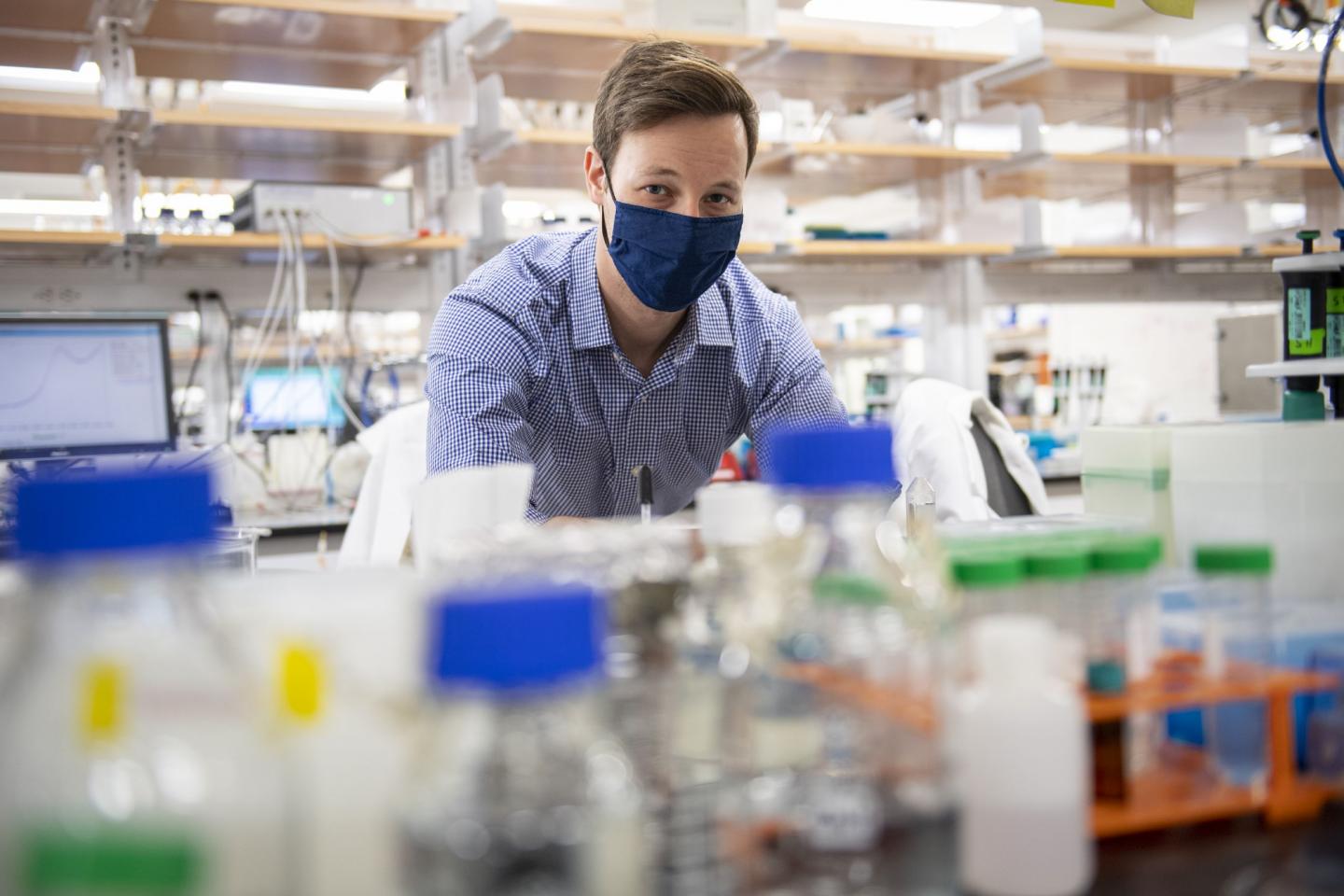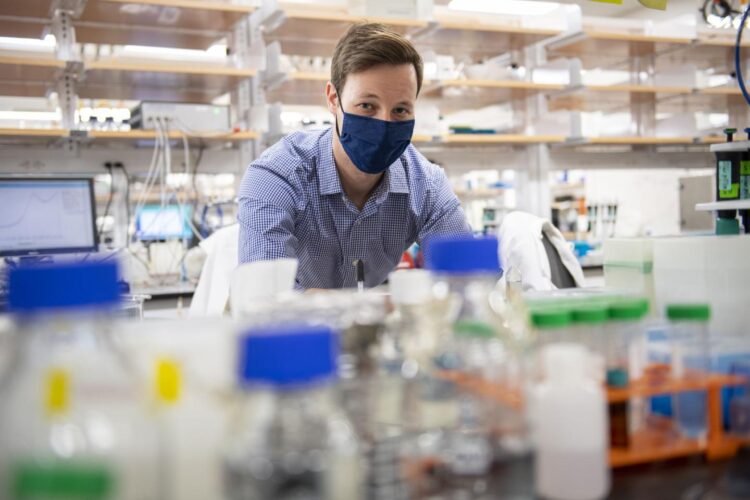UC chemists used quantum simulations to understand a solvent that holds promise for green energy

Credit: Colleen Kelley/UC Creative
To understand the fundamental properties of an industrial solvent, chemists with the University of Cincinnati turned to a supercomputer.
UC chemistry professor and department head Thomas Beck and UC graduate student Andrew Eisenhart ran quantum simulations to understand glycerol carbonate, a compound used in biodiesel and as a common solvent.
They found that the simulation provided detail about hydrogen bonding in determining the structural and dynamic properties of the liquid that was missing from classical models. The study was published in the Journal of Physical Chemistry B.
Glycerol carbonate could be a more environmentally friendly chemical solvent for things like batteries. But chemists have to know more about what’s going on in these solutions. They studied the compounds potassium fluoride and potassium chloride.
“The study we did gives us a fundamental understanding of how small changes to a molecular structure can have larger consequences for the solvent as a whole,” Eisenhart said. “And how these small changes make its interactions with very important things like ions and can have an effect on things like battery performance.”
Water is a seemingly simple solvent, as anyone who has stirred sugar in their coffee can attest.
“People have studied water for hundreds of years — Galileo studied the origin of flotation in water. Even with all that research, we don’t have a complete understanding of the interactions in water,” Beck said. “It’s amazing because it’s a simple molecule but the behavior is complex.”
For the quantum simulation, the chemists turned to UC’s Advanced Research Computing Center and the Ohio Supercomputer Center. Quantum simulations provide a tool to help chemists better understand interactions on an atomic scale.
“Quantum simulations have been around for quite a while,” Eisenhart said. “But the hardware that’s been evolving recently — things like graphics processing units and their acceleration when applied to these problems — creates the ability to study larger systems than we could in the past.”
“How do ions dissolve in this liquid compared to water? First we had to understand what the basic structure was of the liquid,” Beck said.
The research was funded by a grant from the National Science Foundation.
Every lithium ion battery contains a solvent. Finding a better one could improve energy storage and efficiency.
“The world is moving in a sustainability direction. It’s pretty clear that wind and solar will be two major contributors along with other green energy,” Beck said. “But the energy generated is intermittent. So you need methods for large-scale energy storage so that if it’s cloudy for two days, a city can stay running.”
###
Media Contact
Michael Miller
[email protected]
Original Source
https:/
Related Journal Article
http://dx.





